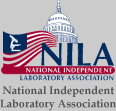About The American Board of Bioanalysis (ABB)
The American Board of Bioanalysis (ABB) is an internationally recognized, CMS-approved not-for-profit certifying board under the CLIA program. Through the certification process, the American Board of Bioanalysis (ABB) evaluates individuals who wish to enter, continue, or advance in the clinical laboratory profession. On a non discriminatory basis, ABB identifies individuals who meet ABB’s requirements for clinical laboratory directors, consultants, and supervisors. ABB certification is based on an individual’s education, experience, and knowledge of the laboratory field in which certification is granted.
ABB requirements do not discriminate against any individual or group of individuals on the basis of race, color, sex, age, religion, or source of national origin.
In 1968, the American Board of Bioanalysis was established by the American Association of Bioanalysts (AAB) in response to passage of the Medicare regulations (1966) and the Clinical Laboratories Improvement Act of 1967 (CLIA ’67), which defined the qualifications for a laboratory director. In 1972 ABB’s certification program was expanded to include supervisors (General Supervisor certification was discontinued on January 1, 2019.). In 1982 it was expanded to include managers (subsequently discontinued on July 1, 2005), and in 1993 to include consultants.
The 1974 Medicare regulations for independent laboratories recognized ABB as a certifying agency under section 405.1312 (b) (2) and (4). At that time, ABB revised its standards for laboratory director certification, creating three levels: Bioanalyst Clinical Laboratory Director (BCLD), Clinical Laboratory Director (CLD), and Bioanalyst Laboratory Director (BLD).
With the advent of the CLIA ’88 regulations, which also recognized ABB as a certifying agency for directors and clinical consultants (as do most state regulatory programs), ABB again revised its classifications for directors by replacing the CLD and BLD designations with HCLD (High-complexity Clinical Laboratory Director).
In 2002, ABB added a certification category for Embryology Laboratory Directors (ELDs). Although embryology laboratories have yet to be covered by CLIA, ABB has decided to implement an ELD certification that resembles the director qualifications contained in the minimum standards for assisted reproductive technologies of the American Society for Reproductive Medicine’s (ASRM’s) Practice Committee.
Applicants for ELD certification should be aware that the ELD certification may or may not meet CLIA requirements should the Department of HHS decide at a future date that CLIA covers embryology laboratories. Applicants who are performing CLIA-covered tests and who wish to satisfy current CLIA requirements for high complexity testing should seek HCLD(ABB) or BCLD(ABB) certification.
To address the chronic shortage of laboratory scientists certified to direct a high complexity public health laboratory, ABB and the Association of Public Health Laboratories (APHL) agreed to offer a board certification in public health microbiology beginning in the fall of 2009. The certification affords doctoral-level scientists and technical supervisors in public health laboratories a new means to qualify for certification under CLIA. The certification was the first to examine specifically for the training and experience required to direct a state or large municipal public health laboratory.
In 2010 ABB created the certification designation Public Health Laboratory Director (PHLD) for directors certified in a public health discipline.
In 2012, ABB added a certification category for Andrology Laboratory Directors (ALDs). The certification is offered to current HCLD(ABB)s who pass ABB's Andrology and General Knowledge examinations.
In 2018, ABB celebrated its 50th anniversary. Read more about the organization's history here.










